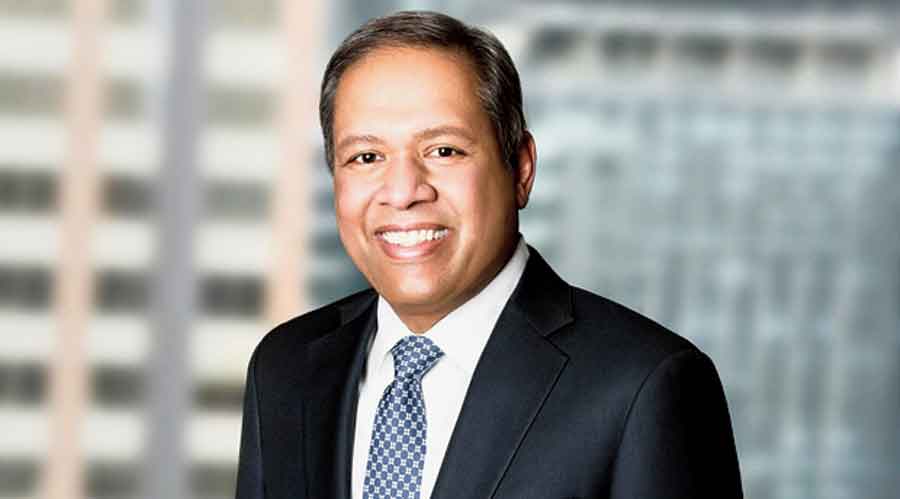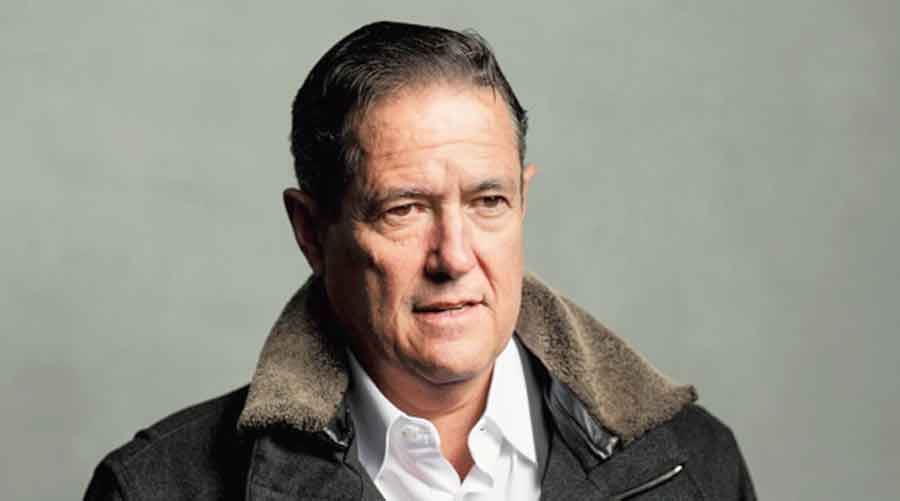C.S. Venkatakrishnan is taking over as the CEO of Barclays — the first time an Indian will take charge of a British bank.
Venkatakrishnan will replace Jes Staley who is stepping down after UK’s financial regulator ordered an investigation into the latter’s relationship with disgraced American financier Jeffrey Epstein.
Venkatakrishnan, or Venkat as he is known in banking circles, will join Anshu Jain at Deutsche Bank and Vikram Pandit at Citibank in an elite club of Indians who rose to the pinnacle of global banking.
Pandit was the former CEO of Citigroup, while Jain was the co CEO of Deutsche Bank between 2012 and 2015.
Prior to his appointment as group CEO, Venkat was the head of global markets, co-president of Barclays Bank plc and a member of the group executive committee based in New York. He was also the chief risk officer at the bank.
According to the Barclays website, before joining the bank in 2016, he worked at JP Morgan Chase from 1994, holding senior roles in asset management where he was chief investment officer managing around $200 billion in global fixed income . He holds a doctorate from MIT.
In a regulatory filing, Barclays said that it was made aware on Friday evening of the preliminary conclusions of investigations done by UK regulators Financial Conduct Authority and Prudential Regulation Authority into the relationship between Staley and the late Jeffrey Epstein.
It added that while Staley will contest the findings of the investigation, the board and the former CEO have agreed that he will step down from his role as group chief executive and as a director of Barclays.
Barclays said Venkatakrishnan will take over as the group chief executive with effect from November 1, 2021, subject to regulatory approval, and as a director.
“The board has had succession planning in hand for some time, including reviewing potential external appointees, and identified Venkat as its preferred candidate for this role over a year ago, as a result of which he moved from the position of group chief risk officer to head of global markets,” Barclays said.
“The board has long been confident in Venkat’s capabilities to run the Barclays Group and is delighted to have such a strong internal candidate. The board is confident that Barclays under his leadership will continue its strategic direction and improve performance in line with the progress of recent years.’’

C.S. Venkatakrishnan
Venkatakrishnan will receive a fixed pay of £2.7 million, delivered 50 per cent in cash paid monthly and 50 per cent delivered in Barclays shares.
The shares, Barclays disclosed, will be delivered quarterly and subject to a holding period with restrictions lifting over five years. He will also receive a cash payment in lieu of pension of £135,000 per annum.
Staley woes
The relationship between Staley and Epstein dates back to Staley’s tenure as the head of private banking at JPMorgan Chase. Staley used Epstein — who killed himself in 2019 after facing new allegations of sex trafficking of underage girls — to connect with potential clients. Barclays said the investigation of Staley did not make any findings that Staley “saw, or was aware of, any of Epstein’s alleged crimes” and that it was “disappointed” with the outcome.
The two regulators declined to provide any details about what their inquiry against Staley had found saying in a joint statement that they “do not comment on ongoing investigations or regulatory proceeding”.
Barclays said the investigation focused on how Staley had characterised his relationship with Epstein to the board and the subsequent description of the relationship in Barclays’ response to the Financial Conduct Authority.
With inputs from New York Times New Service











